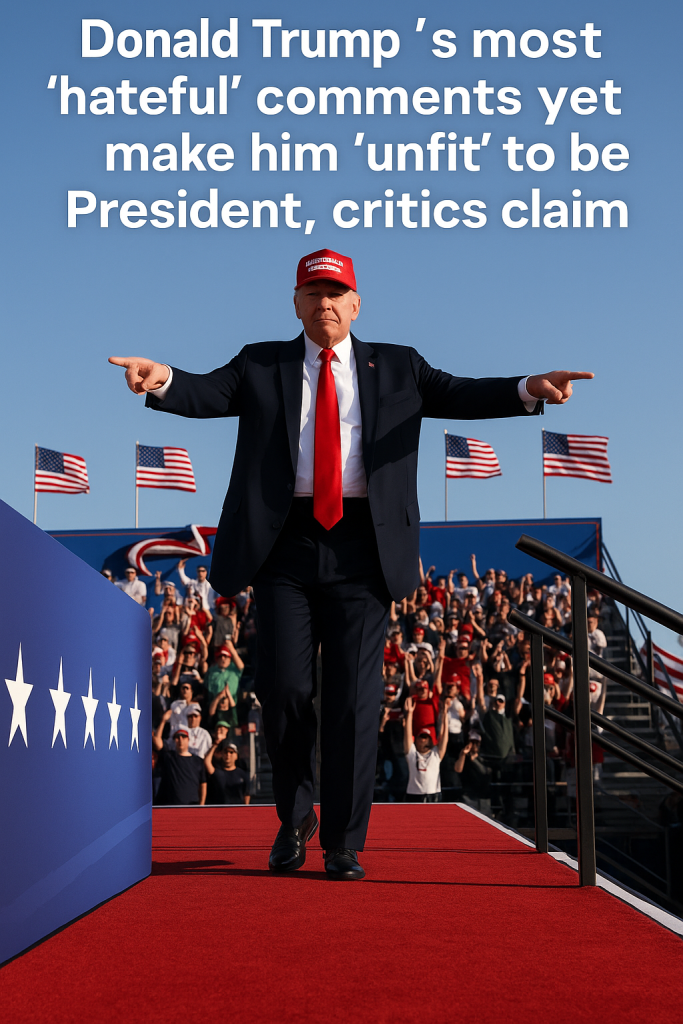Donald Trump, former President and leading contender for the 2024 Republican presidential nomination, has come under intense scrutiny following a series of remarks widely described by critics as his most “hateful” to date. These statements have reignited fierce debates about his temperament and suitability to lead the nation, with opponents asserting that such rhetoric renders him unfit to hold the highest office.
In recent speeches and social media posts, Trump’s comments targeted a range of groups, sparking controversy for their perceived divisiveness. Critics argue that his language goes beyond political disagreement into the realm of fostering intolerance and hatred. The backlash has been swift, with many political commentators, former officials, and advocacy groups condemning the remarks as dangerous for a country already grappling with deep social and political fractures.
Context and Content of the Remarks
While specifics of Trump’s statements vary, common themes include harsh criticism of immigrants, minority communities, and political opponents. Observers note a tonal shift from his earlier rhetoric, which, although often blunt and confrontational, now crosses into what many describe as incendiary and demonizing language.
This intensification of speech comes as Trump seeks to galvanize his base ahead of the 2024 election. It appears calibrated to appeal to voters frustrated with current political dynamics but has alienated a significant portion of the electorate and members within his own party.
“The kind of language and targeted attacks we are hearing now do not merely reflect strong political opinions — they serve to deepen division and sow discord,” said one political analyst. “These are not qualities we want embodied in a President.”
Political and Public Reactions
Democratic leaders and many Republicans have publicly denounced the comments. Some prominent figures within the GOP have voiced concern that embracing such rhetoric might undermine the party’s broader appeal, especially among younger and more diverse voters.
Several advocacy organizations have also condemned the remarks as hateful and inflammatory. They emphasize that rhetoric from a presidential candidate carries significant weight and that language perceived as fostering hatred could embolden extremist groups and exacerbate societal tensions.
On the other hand, Trump’s steadfast supporters argue that his comments are instances of “telling the truth” or speaking frankly about issues that other politicians avoid. They maintain that labeling his speech as “hateful” is a tactic by opponents to silence and delegitimize his platform.
Implications for the 2024 Election
The controversy surrounding Trump’s remarks is likely to shape the landscape of the upcoming presidential race. It compounds existing debates about political decorum, leadership qualities, and the boundaries of free speech in electoral politics. Voters and political strategists alike will be watching closely to see how this affects Trump’s support both within the Republican Party and in the general electorate.
Experts emphasize that the 2024 election, already one of the most polarized in American history, may hinge not just on policy but on how candidates communicate and unite (or divide) the nation.
“Ultimately, the question voters face is whether they believe a candidate who engages in such divisive rhetoric is capable of governing responsibly and ethically,” remarked a political ethics scholar.
As Donald Trump continues his campaign trail, the heat of this controversy remains a potent reminder of the power of words in American politics—highlighting the delicate balance between robust debate and destructive discourse.



